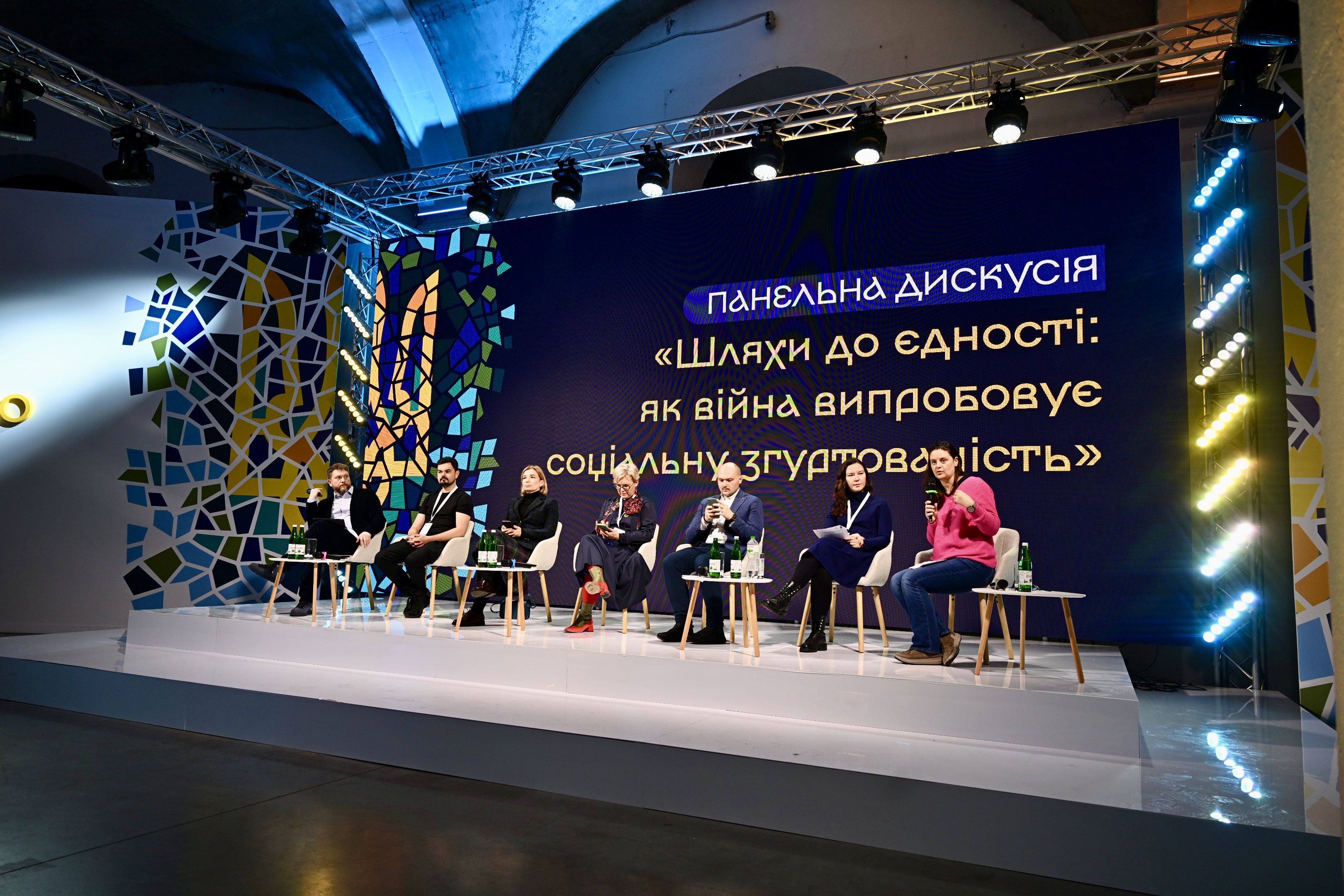“At one point even I bought into the idea that we are way too polarized and this is the wrong way to go”, said Olha Aivazovska during presentation of key findings of OPORA’s study “(Dis)connected: Polarization in Ukrainian Society” at the 13th annual Civil Society Development Forum.
According to chair of the board of Civil Network OPORA, for almost a year Ukrainians have been persuaded into believing that hatred, polarization and hostility prevail in our society. The study “(Dis)connected: Polarization in Ukrainian Society” was carried out by OPORA and the Kyiv School of Economics with the aim of confirming or refuting this hypothesis.
“When I saw the initial results, I told my fellow analysts that we must have done something wrong. A year ago, I visited a number of European capitals and talked to our partners about the need to continue providing financial, political and diplomatic support Ukraine, and they asked whether it was true that there is no unity in the ranks of Ukrainians anymore”, Aivazovska noted. According to Olha, our foreign partners feared that their investments would be ineffective due to societal rifts in Ukraine.
However, the study results go to show that there is no polarization in Ukrainian society, and on average, a rather large proportion of respondents (67%) has a sense of belonging to majority. “Based on my position on a particular policy, I identify myself with majority, which means that there is no polarization”, Olha Aivazovska explained the study findings. Thus, the population groups that were initially seen as polarized in theoretical terms are not afraid to express their views nor do they feel like a marginalized minority.
In addition to refuting the hypothesis of societal polarization, the study results also indicate the absence of hate in our country. Olha Aivazovska elaborated: “In my opinion, mutual disagreement or public discussion is a characteristic feature of Ukrainian identity. Be it our government, newspapers, friends or family members, we take everything others say with a pinch of salt. Members of condominium association hold discussions about the color and type of flowerbed that should be planted in the curtilage of apartment building. This is indicative of the fact that Ukrainians have developed a culture of dialogue, but perhaps there is some room for improvement in terms of adhering to the ‘do no emotional harm’ principle.”
According to Aivazovska, the spread of narratives about societal polarization can be attributed to two factors: emotional fatigue of Ukrainians, who are “really tired of surviving”, and dissemination of Russian propaganda to Ukrainians, who live abroad or in the temporarily occupied territories and fell out of the information space of Ukraine.
“While disagreeing with each other, it is very important that we maintain the balance of communicational culture, vehement opposition and counterarguments. Olha Aivazovska concluded her speech by emphasizing the following point: “After more than ten years of war and almost three years of full-scale invasion, Ukrainian society is united as never before.”
This conversation took place on December 5, 2024, during the panel discussion “Avenues to unity: how the war has put social cohesion to test” at the 13th annual Civil Society Development Forum (in partnership with UNDP). The event featured discussions with representatives of civil society and donor organizations, charitable foundations, government agencies, civic activists, volunteers and fundraisers.
The study “(Dis)connected: Polarization in Ukrainian Society” was carried out jointly by analysts and sociologists of the Civil Network OPORA and the Kyiv School of Economics in September 2024. In particular, they examined attitudes towards representatives of potentially polarized groups based on religious affiliation, participation in armed hostilities, language of communication, content consumption, and war-induced displacement.
